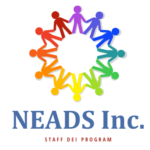Privilege is the unearned social, political, economic, and psychological benefits of membership in a group that has institutional and structural power. There are many types of privilege that different groups have in the U.S.
We commonly hear about privilege because of race or gender, but privilege also exists for different groups based on religion, sexuality, ability, class, education level, and citizenship.
Having privilege can give you advantages in life, but having privilege is not a guarantee of success.
Recognizing privilege and the ways white people have benefited from racism is a critical step in working toward an equitable, fair and just society.
| Title | Categories | Time Commitment | Trigger Warnings | Link | hf:doc_categories |
|---|
| Why are US cities still so segregated? | Equity & Equality, Privilege, Race | 5-10 min | | | equity-equality privilege race |
| The Circle Activity | Equity & Equality, Privilege, Race | 1 hr +/- | | | equity-equality privilege race |
| Systemic Racism in the Dog World | Equity & Equality, In the Workplace, Privilege, Race | 20-30 min | | | equity-equality in-the-workplace privilege race |
| Pronouns & Email Signatures – One Step to an Inclusive Workplace | Equity & Equality, In the Workplace, Privilege, Pronouns | 5-10 min | | | equity-equality in-the-workplace privilege pronouns race gender-identity lgbtq |
| What is Privilege? | Equity & Equality, Privilege, Race | <5 min | | | equity-equality privilege race |
| White Supremacy Culture – Tema Okun | Equity & Equality, Privilege, Race | 1 hr +/- | | | equity-equality privilege race |
| White Privilege: Unpacking the Invisible Knapsack | Equity & Equality, Privilege, Race | 20-30 min | | | equity-equality privilege race |
